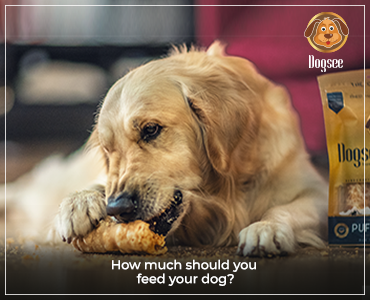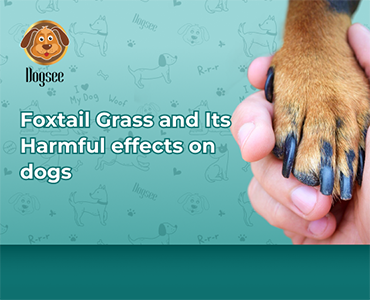
Wondering which fruits are good for dogs? Let’s explore a few options for the best fruits for dogs and also find out their benefits. Having mentioned that, it is also important to understand that not all fruits are good for dogs. Some fruits are a strict NO and a pet parent should ensure that their dog avoids these fruits at all times.
Here is a list of fruits for dogs, the ones they can and can't eat and the reasons why!
What fruits can dogs eat?
1) Apple: Apple is among the best fruits for dogs as they are rich in vitamins and soluble dietary fibre. Adding this fruit to your dog’s diet will be an excellent way to keep their teeth and breath clean. And since they are crunchy, many dogs may take a liking to it. However, if your dog seems to be a fussy fruit eater, you can always buy organic freeze-dried fruit treats that are a great source of all the nutrients mentioned above. Organic fruit treats are also a good alternative as they do not contain any preservatives or artificial sweeteners.

2) Banana: When you are searching for fruits for puppies, bananas can be a great option. Potassium in bananas helps strengthen the bones and aids in better calcium absorption. It is also rich in Vitamin B6 and Vitamin C which are essential nutrients for general health and vitality. Since bananas contain high amounts of natural sugars, you might want to limit your dog’s consumption of this fruit. Half a banana once in a while is a good portion for adult dogs. Smaller dogs can be given even smaller portions. There are training treats made of bananas which can also be an option apart from the fruit. Some dogs may prefer a crunchier version and these treats can be more appealing to them.

3) Blueberries: As we all know, they are very rich in antioxidants and also prevent damage or degeneration to the cells. You can use frozen or the real fruit as treats during training sessions too. Blueberries are a great option but should again be fed in moderation. Fruits should only be a part of 10% of your dog’s daily diet. Dogs need more protein and fat, especially during the growing years and less fruits and vegetables in their daily diet.
4) Mango: Mango is a good fruit for dogs but the moderation rule applies to this fruit too. Mangoes contain Vitamin A, C, E and B6 and are rich in dietary fibre, potassium and beta-carotene. Mangoes are also known to decrease inflammation and improve gut health. The mango should be peeled and deseeded before you serve it to your pet pooch. You can feed mangoes in moderation to puppies too.
5) Pear: Pears are rich in essential nutrients like vitamins, copper (helps body absorb iron aiding in red blood cell function. The high amount of dietary fibre enables the digestive system to function properly. However, you should avoid canned pears in sugar syrup due to the high amount of sugar they contain.
6) Watermelon: Another great fruit for the summer, watermelon is rich in fibre, vitamins and has a good amount of water which will keep your pooch hydrated. When given in moderation, it can be a good summer treat. Make sure to separate the seeds as watermelon seeds are known to cause intestinal blockage.
Can dogs eat dried fruits?
Though dried and frozen fruits are a wonderful source of vitamins and minerals, it should still be served in moderation. Some store bought dried fruits may contain artificial sweeteners which should be avoided at all costs. Try organic dried fruit treats which can be a great option especially as a reward during training sessions. These organic freeze-dried fruits are made of just a single fruit ingredient without any other additives. It's the safest option for fresh fruits, not just for our canine companions but us too.
What fruits can’t dogs eat?
1) Grapes: Grapes are a definite NO when it comes to fruits for dogs! Even raisins are hazardous to a dog’s health. This fruit is known to cause kidney failure in dogs, hence it can be fatal. If a situation arises where your dog has eaten grapes and is having trouble breathing, you should immediately take them to the nearest vet.
2) Avocado: When it comes to fruits for puppies, avocados can cause diarrhea and vomiting and can also be toxic. It contains a toxin called persin which is a fatty acid and which is believed to be poisonous to birds and large animals. Though it is generally not harmful to dogs and cats when served in very small quantities, it still is not advisable.
3) Tomato: Though ripe tomatoes are eaten by pets, it is advisable to avoid the greener and unripe tomatoes as they contain a substance called Solanine. The leaves and stems of a tomato plant contain this toxic substance and the young green tomatoes contain them too. Therefore, try to avoid tomatoes to be on the safer side.
4) Cherries: Did you know that the stems, leaves and the pits of the cherry plant contain cyanide, a highly toxic and dangerous substance. Though one or two cherries is known to cause no harm to animals , it should still be avoided as the more cherries dogs eat, the higher the risk of poisoning. Cherries can also be potential choking hazards or can also be lodged in the intestine.
Conclusion
These were some fruits for dogs that can either be beneficial or potentially harmful to your pet pooches. If you are unsure of feeding fruits to dogs or find it just too messy, you can use fruit treats and other freeze-dried dog treats (learn about their benefits here). Choose a brand that is trustworthy and that doesn't use too many chemicals and preservatives in these treats. The idea is to find the best source of vitamins and antioxidants to keep our furry babies healthy.
 HELPFUL0 people found it helpful
HELPFUL0 people found it helpful
Related Blogs
Subscribe to Our Blogs
and never miss on the latest update!


















